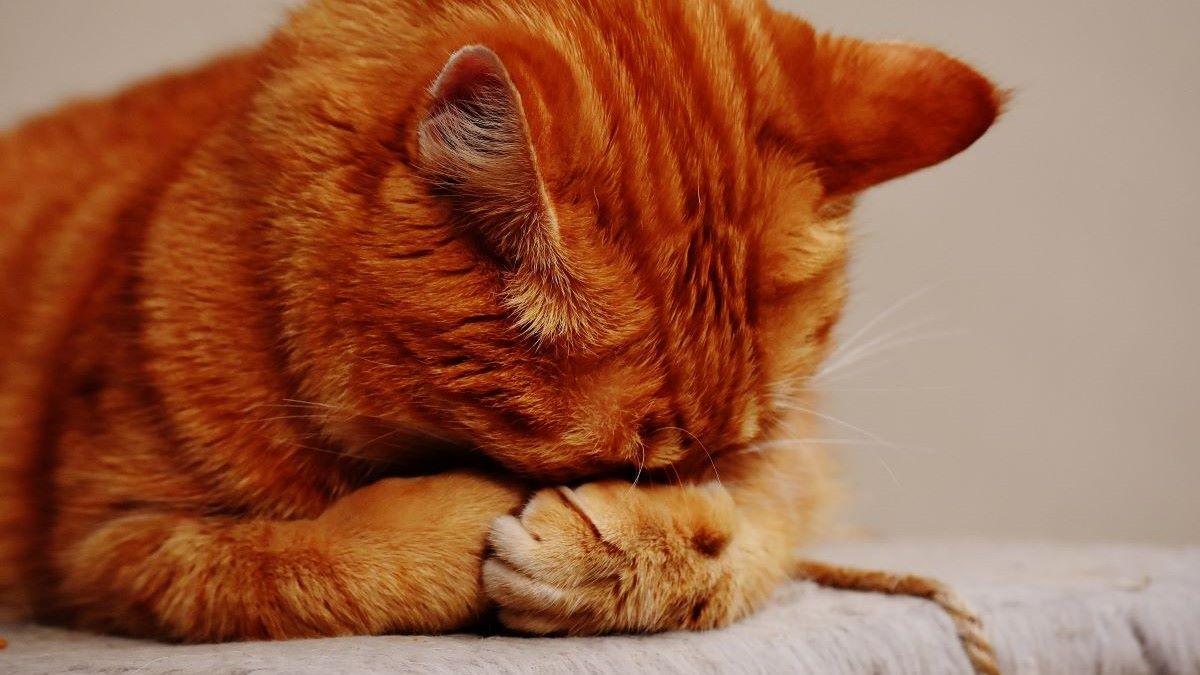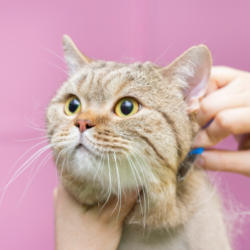Caring for a cat goes beyond affection and includes essential aspects such as hygiene and health. Among these, deworming plays a key role. It’s crucial to choose the right product to combat worms, whether roundworms like roundworms or flatworms like tapeworms. These parasites, although sometimes tolerated in small quantities, can seriously damage your cat’s health and can even be transmitted to humans. This article will guide you in choosing the right dewormer, emphasising the importance of a veterinary consultation and the criteria for selecting the most suitable treatment for your feline companion.
The different types of worm in cats
whatever the species, all animals harbour internal parasites. Cats, for example, harbour two main types of worm in their digestive system:
- Roundworms such as roundworms, whipworms and hookworms
- Flatworms such as tapeworms.
Although cats can live without too many constraints with a limited number of worms, it is essential to avoid an overpopulation of parasites in the body. The risks: deterioration in health due to parasitosis and transmission to humans.
Which cat dewormer should I choose?
First and foremost, the anti-parasite device should target precisely the type of worms the cat is suffering from. Next, the dosage must be perfectly suited to the cat’s weight. So, as soon as you suspect a parasitosis, the best thing to do is to consult a vet, who will make a diagnosis and prescribe the appropriate dewormer. This will make it easier to choose the right wormer for your cat. In addition to the medical prescription, there are a few other important criteria:
- Isolated or multiple action: some dewormers will eliminate only one type of roundworm or tapeworm, while others are formulated for complete deworming. The latter is more practical and advantageous if several worms are diagnosed.
- Natural ingredients: there are some excellent plant-based cat wormers available today, combining various active ingredients to kill multiple parasites. Unlike their chemical counterparts, they respect the intestinal flora, which limits the common side-effects of worming (vomiting, diarrhoea, etc.).
- The form: drops, tablets, pipettes, paste or injection… Knowing your cat better than anyone, you’ll be able to choose the best form of treatment for comfortable administration.
How often should I worm my cat?
Because the presence of worms in a cat’s body is inevitable, it’s a good idea to wormed regularly to prevent infestation and avoid the risk of worms spreading to humans. The recommended frequency is :
- Every 2 weeks until the age of 3 months for kittens over 6 weeks old; then once a month until the age of 6 months
- 2 to 4 times a year – at each change of season, for example; for cats over 6 months old.
- Ideally, you should worm breeding females, 2 to 3 days before mating and 3 weeks after giving birth.
Finally, pay attention. A dull coat, bloody diarrhoea or vomiting, an abnormally swollen belly and accelerated weight loss are all signs that should alert you to a possible worm infestation.
Preventing worm infestations in cats
Preventing worm infestations in cats is a crucial aspect of your pet’s health and well-being. By adopting certain preventive measures, you can not only reduce the risk of worm infestation, but also ensure a healthier, happier life for your cat. Here are some key tips to help you achieve this:
1. Maintain good hygiene and a clean environment
One of the most important steps you can take to prevent worm infestations is to maintain a clean environment for your cat. This includes:
- Regularly cleaning your cat’s litter box: Make sure you change your cat’s litter frequently and clean the litter tray with pet-safe disinfectants. Worms can be spread through droppings, so regular cleaning is essential.
- Living area hygiene regularly clean areas where your cat spends a lot of time, such as its basket, toys and cushions. A clean environment reduces the chances of parasites spreading.
- Personal cat care brush your cat’s coat regularly to remove debris and external parasites. Cats that groom themselves can ingest parasites, so a clean coat can help prevent internal infestations.
2. Provide a healthy, balanced diet
Good nutrition plays an essential role in boosting your cat’s immune system, making him less susceptible to worm infestations. To achieve this, we recommend :
- Choose a quality food: Opt for a balanced cat food rich in essential nutrients. Look for foods containing a good balance of proteins, fats, vitamins and minerals.
- Avoid raw food: Raw or undercooked food can contain parasites. It is therefore advisable to feed your cat properly cooked or treated food to avoid the risk of infestation.
- Nutritional supplements: Consider adding specific supplements to your cat’s diet, after consulting a vet, to boost immunity and resistance to parasites.
By adopting these practices, you can considerably reduce your cat’s risk of worm infestation. Remember that prevention is always easier and safer than treatment. Consult a vet regularly for health checks and personalised advice for your cat.
Symptoms of worm infestation in cats
Identifying the symptoms of worm infestation in cats early on is crucial to choosing the right dewormer. Intestinal worms, such as roundworms, tapeworms and hookworms, can cause a range of health problems in cats. Here’s a detailed description of the signs and symptoms to look out for:
Physical signs of worm infestation :
- Weight loss and variable appetite: A cat infested with worms may show noticeable weight loss, despite a normal or increased appetite. This is because the worms consume part of the nutrients ingested by the cat.
- Swollen or distended belly: In kittens in particular, an abnormally swollen belly can be a sign of worm infestation. This symptom is often more noticeable in young cats.
- Worms in the faeces or around the anus: You may sometimes see worms or worm segments (which look like small grains of rice) in the cat’s faeces or around the anus.
- Dull coat and hair loss: A coat that loses its shine and becomes dull, or unusual hair loss, may be a sign of parasitic infestation, as nutrients are not being properly absorbed.
- Gastrointestinal symptoms: Diarrhoea, vomiting or constipation may be signs of worm infestation. These symptoms can vary in severity depending on the extent of the infestation.
Behavioural changes:
- Lethargy: A cat infested with worms may be less active, more tired and listless. This change in behaviour is often due to reduced energy and vitality.
- Irritation or itching: Infested cats may lick or scratch themselves more frequently, particularly around the tail and anus, due to the irritation caused by the worms.
- Change in appetite: Although some cats may have an increased appetite, others may show a loss of appetite. These changes may be signs of intestinal discomfort due to worms.
It is important to note that some cats infested with worms may show no visible symptoms, especially in the early stages of the infestation. Regular veterinary checks are therefore essential for early detection and effective treatment. If in doubt, or if any of these symptoms are present, consult a vet immediately.







